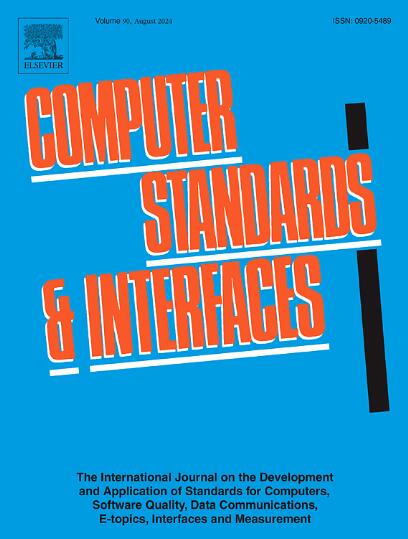Post-quantum secure ID-based encryption with equality test against insider attacks from isogeny
IF 3.1
2区 计算机科学
Q1 COMPUTER SCIENCE, HARDWARE & ARCHITECTURE
引用次数: 0
Abstract
With the rise of AI and smart computing, encryption with equality test has been shown useful in such applications. Compared to the standard ID-based encryption with equality test (IBEET), IBEET against insider attacks () allows one to check whether two ciphertexts encrypt the same message without using her private keys, and provides ciphertext indistinguishability against trapdoor holders. As a trade-off, a user needs to adopt a user-specific trapdoor to encryption messages. Unfortunately, we found that in the existing schemes actually fail to protect the information of the encrypted message, which should be the basic requirement for encryption. In this manuscript, therefore, an attack to the existing scheme is first demonstrated, and a potential solution by slightly modifying the definition of is given. Besides, a new generic construction for is also presented in this manuscript. To the best of our knowledge, the proposed construction is the only one achieving ciphertext indistinguishability and one-wayness simultaneously. Furthermore, by adopting Emura’s transformation, an ID-based encryption (IBE) from isogeny is further obtained, which may be the first quantum-resistant isogeny-based IBE scheme.
基于id的后量子安全加密与抗同基因内部攻击的相等性检验
随着人工智能和智能计算的兴起,具有相等性测试的加密在这些应用中已经被证明是有用的。与标准的基于id的具有相等性测试的加密(IBEET)相比,针对内部攻击的IBEET (IBEETIA)允许一个人在不使用她的私钥的情况下检查两个密文是否加密了相同的消息,并提供密文对活板门持有者的不可区分性。作为权衡,用户需要采用特定于用户的陷阱门来加密消息。不幸的是,我们发现在现有的IBEETIA方案中,实际上并没有保护加密消息的信息,而这应该是加密的基本要求。因此,在本文中,首先演示了对现有IBEETIA方案的攻击,并通过稍微修改IBEETIA的定义给出了一个潜在的解决方案。此外,本文还提出了IBEETIA的一个新的属型结构。据我们所知,所提出的结构是唯一一种同时实现密文不可分辨性和单向性的结构。在此基础上,采用Emura的变换,进一步得到了基于id的等同性加密(IBE),这可能是第一个抗量子的基于等同性的IBE方案。
本文章由计算机程序翻译,如有差异,请以英文原文为准。
求助全文
约1分钟内获得全文
求助全文
来源期刊

Computer Standards & Interfaces
工程技术-计算机:软件工程
CiteScore
11.90
自引率
16.00%
发文量
67
审稿时长
6 months
期刊介绍:
The quality of software, well-defined interfaces (hardware and software), the process of digitalisation, and accepted standards in these fields are essential for building and exploiting complex computing, communication, multimedia and measuring systems. Standards can simplify the design and construction of individual hardware and software components and help to ensure satisfactory interworking.
Computer Standards & Interfaces is an international journal dealing specifically with these topics.
The journal
• Provides information about activities and progress on the definition of computer standards, software quality, interfaces and methods, at national, European and international levels
• Publishes critical comments on standards and standards activities
• Disseminates user''s experiences and case studies in the application and exploitation of established or emerging standards, interfaces and methods
• Offers a forum for discussion on actual projects, standards, interfaces and methods by recognised experts
• Stimulates relevant research by providing a specialised refereed medium.
 求助内容:
求助内容: 应助结果提醒方式:
应助结果提醒方式:


